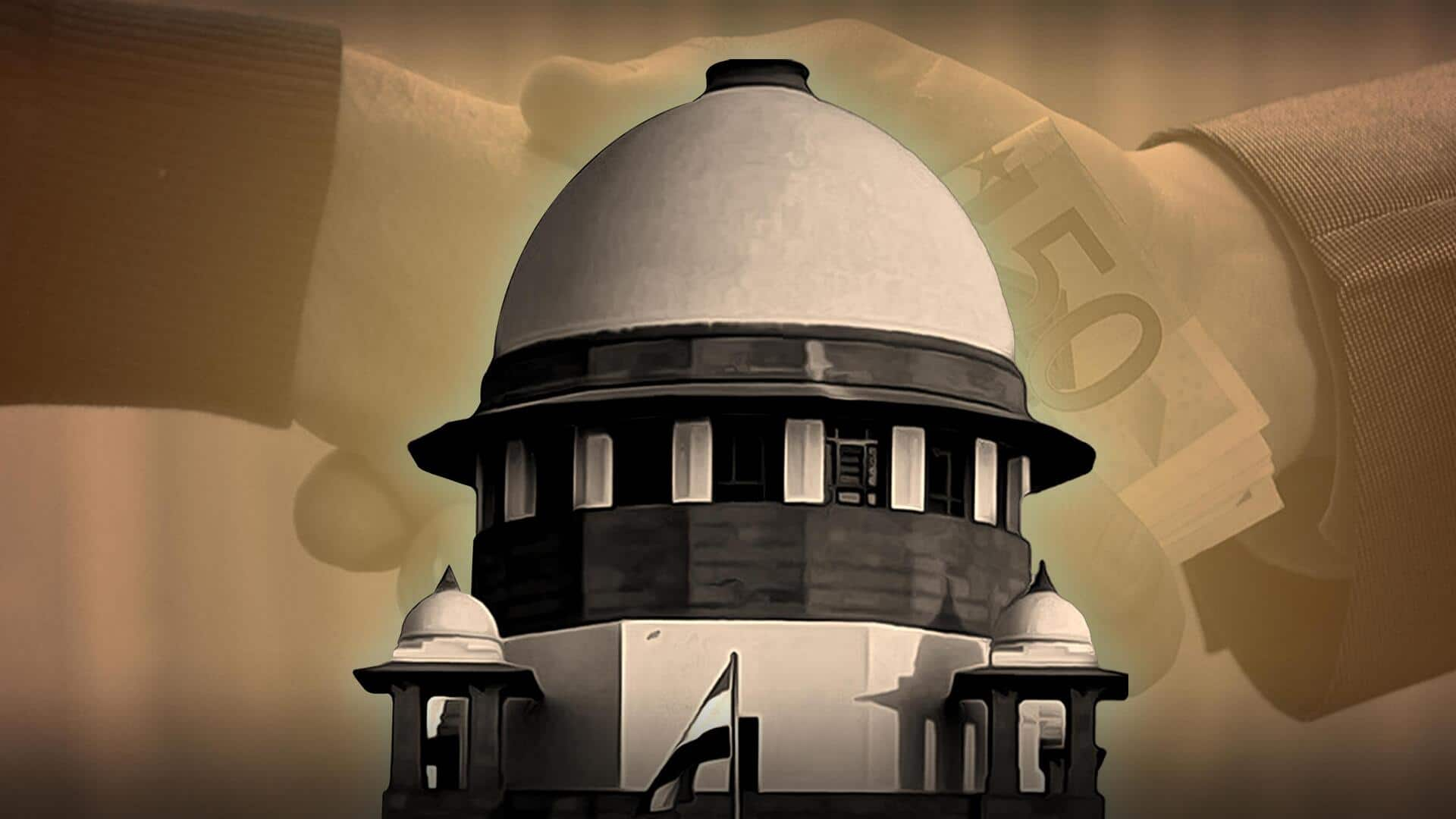
No immunity to MLAs, MPs in bribe-for-vote cases: SC
What's the story
The Supreme Court on Monday said an MP or MLA cannot claim immunity from prosecution on charges of bribery in connection with casting a vote or making a speech in the legislature. A seven-judge bench, led by Chief Justice of India (CJI) DY Chandrachud, pronounced its "unanimous decision" on the matter. To recall, the verdict was reserved in October 2023.
Context
Why does this story matter?
The verdict overturned a 1998 judgment in which a five-member Constitution bench upheld the immunity for lawmakers over taking bribes for House speeches or votes. The previous ruling dealt with a bribery case involving Jharkhand Mukti Morcha MPs, who allegedly accepted bribes for supporting the PV Narasimha Rao government in 1993. In 1998, the court held that the lawmakers' immunity from prosecution extended to their votes and speeches inside the House.
SC order
'Bribery isn't covered by parliamentary privileges'
On Monday, the Supreme Court said bribery isn't covered by parliamentary privileges, and the interpretation of the previous verdict is contrary to Articles 105 and 194 of the Constitution. These two Articles grant elected representatives legal immunity from prosecution, allowing them to work without fear of legal repercussions. "We disagree with the judgment in PV Narasimha (case)," the CJI said during the ruling.
7-judge bench says
'Corruption and bribery erode probity in public life'
The seven-judge SC bench also highlighted that parliamentary privileges are primarily connected to the House as a whole and crucial for its functioning. The court pointed out that corruption and bribery undermine the Constitution's aspirations and deliberative ideals. "Corruption or bribery by a member of legislature erodes probity in public life," the bench declared, adding that "accepting bribes itself constitutes the offense."
CJI's statement
'1998 verdict on immunity has grave danger, overruled'
The apex court added granting any privilege unrelated to the Parliament or legislature's functioning would lead to a class with unchecked exemptions from the law. "In the course of this judgment, while analyzing majority and minority decision of Narsimha Rao judgment, we disagree and overrule the judgment that parliamentarian can claim immunity (sic)," it said. "The judgment of the majority in Narsimha Rao which grants immunity to legislators has a grave danger and thus overruled (sic)," the CJI opined.
History
What is the JMM MPs bribery case
The case arose from a no-confidence motion against Rao's government in July 1993, where his minority government narrowly survived with 265 votes in favor and 251 against. However, a scandal emerged a year later, with allegations surfacing that MPs of the JMM had accepted bribes to support the Rao government.